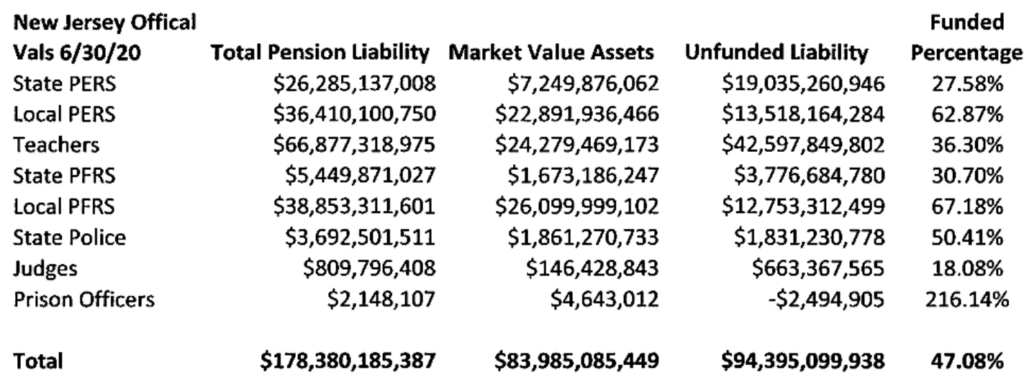Link:https://burypensions.wordpress.com/2021/11/17/municipal-budgets-2021-4-pension-contributions/
Graphic:

Excerpt:
Over at countywatchers I have a series comparing 2021 budget items for the municipalities in Union County and part 4 relates to this blog so here it is.
Comparing pension records to 2021 budget allocations that municipalities in Union County made for their contributions to the New Jersey Public Employees Retirement System (PERS) and Police and Firemen’s Retirement System (PFRS) shows that, on average, PERS and PFRS contributions made up 8.17% of total budgets, representing $170 per resident. The average contribution as a percentage of a participant’s salary came to 25.03% with $19,942 as the average contribution per participant.
Author(s): John Bury
Publication Date: 17 Nov 2021
Publication Site: burypensions



